A Thoughtful Convener of People
Krissy Kludt finds spaces for creativity
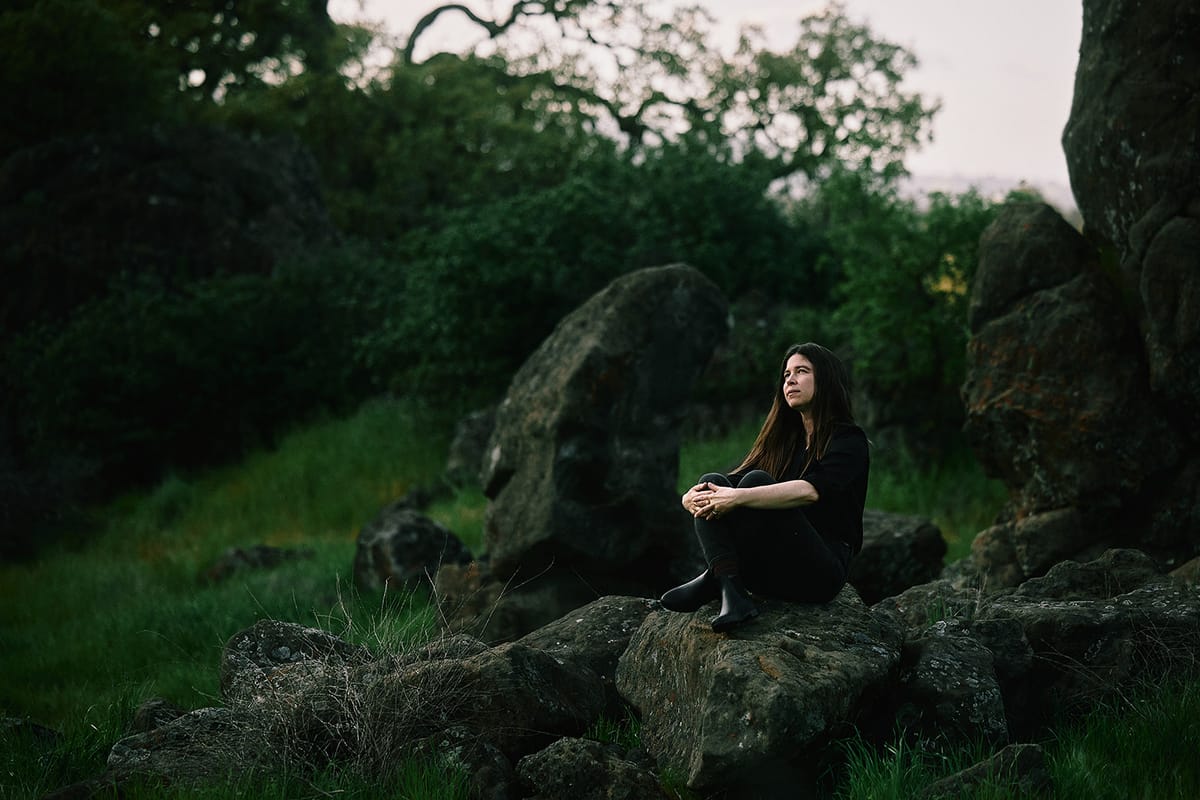
Introduction
Krissy Kludt, as you'll see below, thinks of herself as a convener. I have benefited from her vision and skill in this area as a member of the current cohort in Writing the Wild, a program she founded and serves as Executive Director for.
Krissy is also a poet whose main theme revolves around the Earth and her reverence for it. This commitment comes through in the conversation below, as well as in the attention she gives to all of her work. Some of her poetry is available on her website and included below.
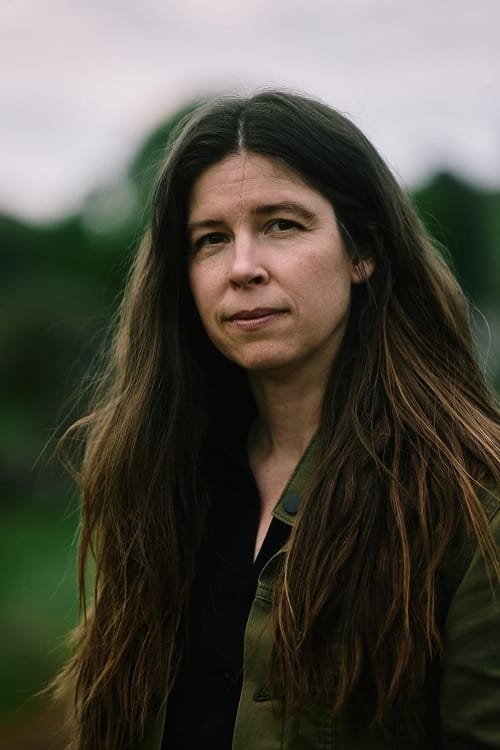
Adam Sowards
Krissy, who are you and how do you describe your work?
Krissy Kludt
I am a poet living in the Driftless Region of southwestern Wisconsin. I describe my work as being a convener. I really like bringing interesting collections of humans together and letting them do their thing in a space. I like to create space for creativity, for writing, for thoughtful discussion.
Most of that I do these days through Writing the Wild, our yearlong nature writing program that I co-guide with J. Drew Lanham.
Adam
Have you always been a poet and a convener? I think your website describes you as a teacher. I'm wondering how that fits in.
Krissy
I was a public school teacher for many years. I taught middle school English and then high school English. So in some ways, yes, I have always been a convener, but for a long time, humans were convened for me and put in a classroom.
It was early in the pandemic that I started writing poetry regularly. I, like many of us, was feeling very disconnected, lonely, depressed – all of those things – and that sent me first out onto the land. I started hiking regularly for the first time in a long time and getting into my place, which then was the East Bay hills in northern California.
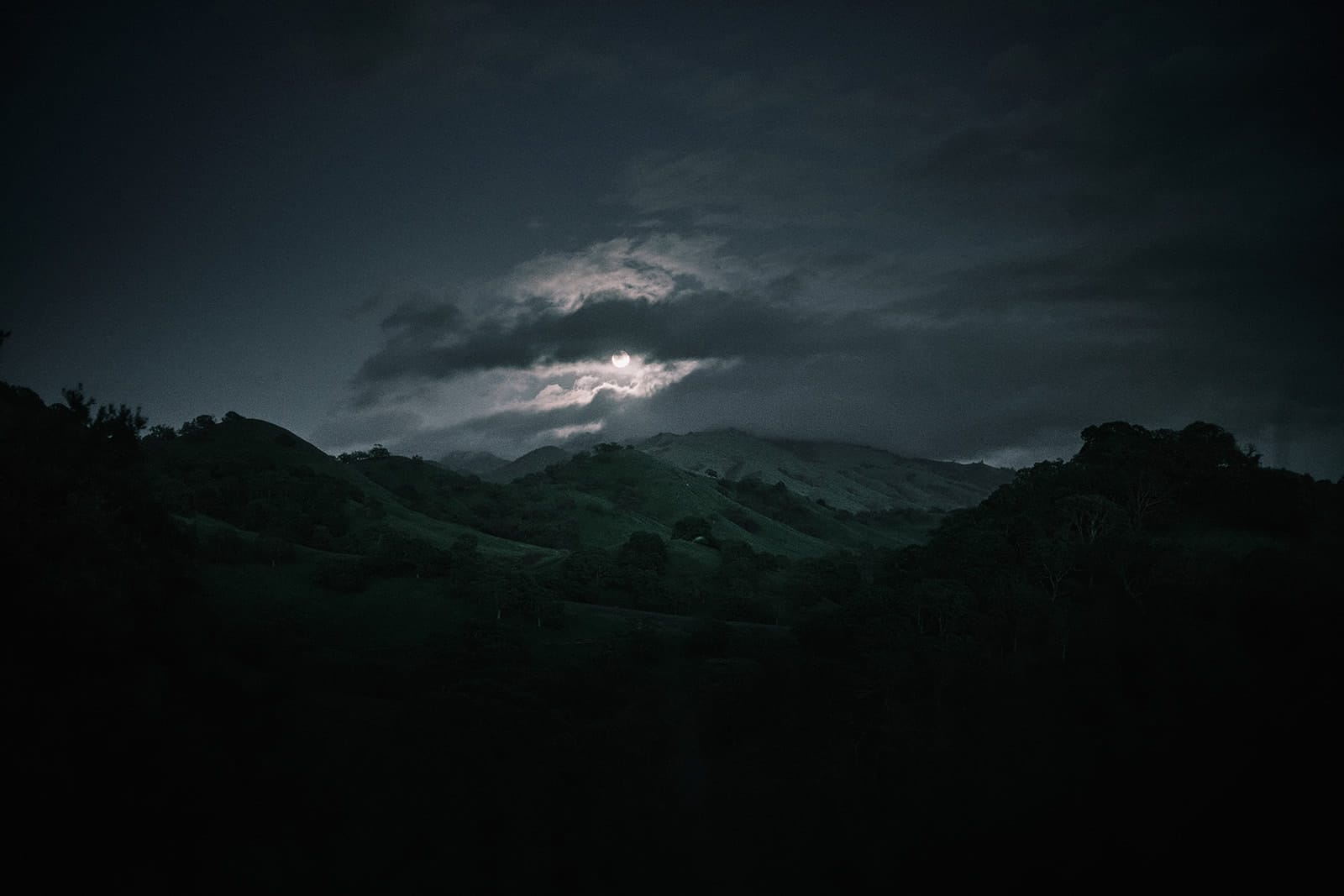
The more time I spent outside, the more I found myself with a pen in my hand. I started writing a lot just for myself. Eventually that evolved into some conversations with our local library manager. It evolved into holding spaces for other people to write. We were talking about how to care for caretakers during the pandemic, how to make space for parents or others who are in a caretaking role. We were discussing how writing is a really helpful reflective practice.
Out of that, I started teaching my first poetry workshops and writing workshops. The rest of it sort of developed from there.
For me, writing was essential for my mental health and my emotional well-being. That was something that eventually I wanted to share with other people. That’s just who I am. If I eat at a restaurant that I think is amazing, I will tell everyone I know that they should eat at that restaurant right away.
This is better than a restaurant. “Let me tell you about what being outside and writing has done for me and let's do it together!”
I'll just fill in the details of that story a little bit, specifically about being a caretaker. My two kids were young at the time, so during the pandemic they were home all the time. We were all home all the time. I felt at first there was no way I was going to find time to write. It felt very impossible. I wanted to, but when? How? There's no space for this.
I had gotten back in touch with an old friend who's an artist. He had asked me for some landscape photos of California. I started sending some of those to him. That creative relationship ended up being really formative in my picking up a pen again. He kept asking me, “Are you writing? Are you writing? What if you just spent just an hour a week? Could you find time then?” Eventually, he invited me to write with him every day. We took turns sending a photo; he would sketch it, and I would write something based on it.
That daily practice and having someone else holding me accountable got me in the habit of writing every single day. This was significant in terms of coming to acknowledge that being a poet was an essential part of who I am and not just a side thing that I could do if I had time. I needed to make time for it.
Adam
I know you because of Writing the Wild where you're the founder and executive director. Could you explain what it is briefly and its origin story? I'm also interested in how running it for you — which seems to have a million details that you always keep track of and do in good cheer — how does it fuel or detract from your creative practices for yourself.
Krissy
Writing the Wild is a yearlong nature writing program. It's all remote, which means it happens both through Zoom and through the Postal Service. Thank you, USPS! Though we don't share air and space in Writing the Wild, at least not often, having some kind of physical connection where I touch a piece of paper and it ends up in the hands of the writers that are working with us feels really important in being connected.
We meet about twice a month, for interviews and workshops. Then we send out art supplies and writing prompts and holistic creative prompts, prompts for connection with nature, prompts for playful rest, in order to fuel our writing and our work together.
That came out of other writing workshops, some one-off, some 4 weeks, some 12 weeks. I had people who'd done all my workshops and were asking, “What's next?” I thought, “Well, I don't know. What if we did something bigger? What would it look like to create something that is more robust and that could become a job for me?”
I taught half-time as Writing the Wild was launching, which was quite an adventure. It was too much to do both, but it felt like it put a lid on the pot. My desire to do this Writing the Wild thing boiled really hot because there was no extra space and no extra time. It really focused the heat of that desire.
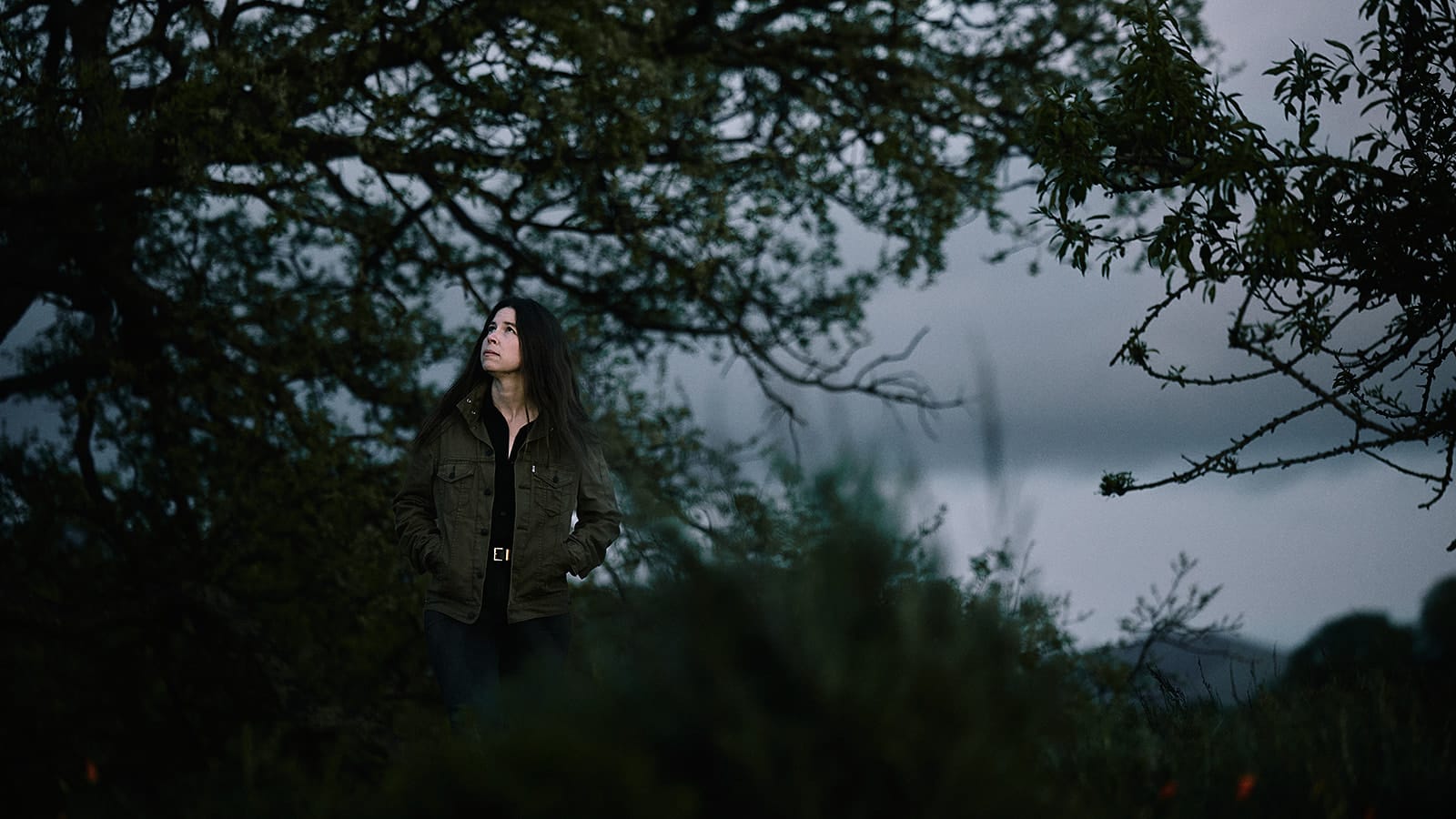
I started with a small pilot group that first year, and I brought in a few guests just for interviews. J. Drew Lanham was one of them. In the spring of that year, I just felt this sort of nudge: “I wonder if Drew would want to do this with me?” We didn't know each other well. I interviewed him once for 30 minutes, and we'd emailed. That was about it.
But we had this really beautiful phone conversation. It was one of those kind of surreal moments of “Yes!,” where we both felt this invitation to take a risk together. He told me on that call, “I'm in.”
I said, “Do you want to think about it?”
He said, “No.”
Then, I said, “OK. Here we go.”
Drew joining with me brought so much to the program because he's fantastic. He has so much wisdom in terms of how to teach writing. We have a lot of common goals and values in terms of wanting our writing program to be for anybody. There is certainly skill and craft taught, but we don't require writing samples. We want this to be for folks who are new to writing, who are writing for themselves, not just for an audience. (Many of them write for an audience as well.)
There was just a lot of synchronicity, and we followed that.
That made Writing the Wild grow very quickly, beyond what I had originally imagined it could. We brought in a lot of other people. That's why I like the word convener, because while I do teach workshops myself, what I love most is bringing in the best people that I know to do that.
My favorite thing to do is to hold the space and let other people work their magic together.
The people we're bringing in as teachers and the writers in the room who bring a lot of the magic with their own pens, with their responses in the chat, with their dear faces in the room and these little windows into their homes that we get – it's all part of the process.
We're now in our second fully launched year, rounding the bend on the halfway point. And year three together is in the planning stages right now.
It has certainly affected my own creative process. In some ways, it's really catalyzed my creative growth. I'm a much better writer because I get to sit in these rooms with these incredible people, and I get to learn along with everybody else. I'm learning a lot. I'm a relatively new poet, so in terms of craft, I'm soaking up a lot of really important wisdom for my own writing.
I would say it hampers me a little bit in some ways. That's twofold.
One is Writing the Wild takes a lot of creative energy to put together. My gosh, what a gift that I get to do this work! I made up a job for myself, and I get to do that job. Who gets to do that? And so there's so much privilege there.
But it does take a lot of creative energy, and it's easy to forget that hosting space for other people to do this good work of writing and connecting with the Earth is not enough to satisfy my own need for that. I also need to be carving out time and space to be doing the thing that I'm inviting other people into. I have to remind myself of that regularly.
I do hold a lot of details, and sometimes I have to remind myself that it's okay to let something slide. It's okay to be late on an email. It's okay to not answer one once in a while. (I try really hard to answer them all.) Sometimes I miss things. Guarding my own space for creativity requires letting go of a little bit of my perfectionism sometimes, and I'm not always great at that.
Some of it is just about believing in the worth of my own work. I'd say that's the other challenge: being in the room with both the people doing our program and the guests we bring in. There are fantastic writers, and many of them are published by some people that I think are incredible. I work with publishers, and I work with editors, and I work with writers. It's easy to think that my own work might not measure up.
I can be hesitant to share it, because who am I convening this space? What if it gets out that my poetry is not as good as everybody else's? What if being new isn't enough? What if I should be more established as a writer before I'm convening this kind of space? All of those imposter syndrome questions certainly come to the surface.
I think the bigger Writing the Wild grows and the more well-known it’s become, those questions don’t go away. They just get intensified.
My same artist friend who I mentioned at the beginning — his name is Adam Himebauch and he’s a New York artist — he used to say, “Fake it till you can fake it on a larger level.” Because nobody really fakes it till you make it. You just you fake it, and then you fake it on a larger level. I remind myself of that on those days where I feel like, who am I to do this?
Well, who are any of us? We're all just people, which is what Sean Hill told me when I was first starting out. We're all just people. It's okay.
Adam
I noticed in reading some of your poetry that you shared with me that you often ask questions.
For example, “How many seasons does it take / to know a place?” (“Tuolumne”), or “Or do you not see? / . . . / have you not heard? (“Of Dust and Water”). That got me thinking about audience and especially because your themes are really tied to nature. How do you think about audience, and when do you think about audience?
Krissy
That is a big question.
I think my first audience is myself. One line that comes to mind from a very short poem I wrote was, “I keep trying to write the poem that I need to read.” I don't know that I've written it yet.
But my first duty as a poet is to both my own unfolding as a human being and to the land. That is pretty much always the theme in what I'm writing. I write as a witness to place. So I would say that my first audience is myself and the places that I'm writing for.
Then a second audience is usually a close friend. I often will text either a photo of a page of my notebook or I'll type something up and send it to someone. Not necessarily for any kind of critical feedback, but I have a few friends who are very good at reflecting back to me what they see in my words. They are my second audience. The creative friendships, but also just deep friendships who can reflect back to me what they see.
Somewhere down along the line after my words have done whatever work they need to do in me, some of them eventually become ready for a wider audience. I would say I think about them pretty late in the game, which is maybe why I don't have a very big audience yet – they're sort of an afterthought.
For me, the real work and the real reward is in the actual creation of the words and of the work. I think so often the sharing of it is a little bit of a letdown. I don't think it's just because my audience is small. I've heard this from others as well. You write something and you put so much of yourself into it, and then you send it out into the world. You get little glimmers back sometimes from people, but often, it's just resounding silence. You hope that the words are doing the work in someone, one person. I trust that they are, because I do hear those little glimmers every once in a while that something has resonated. But, for me, the real work is before, and then the sharing of it is almost a different kind of work than the writing.
To get more specific, what I desire to do is to inspire reverence and presence. I would like those who read my words to have their own desire to connect to place kindled.
I tend towards pretty simple writing, because I want there to be a lot of space for someone's own experience within the poem. So, I think my audience is people who have a little bit of that desire already. Maybe they realize they need some connection or they probably wouldn't be turning to my work.
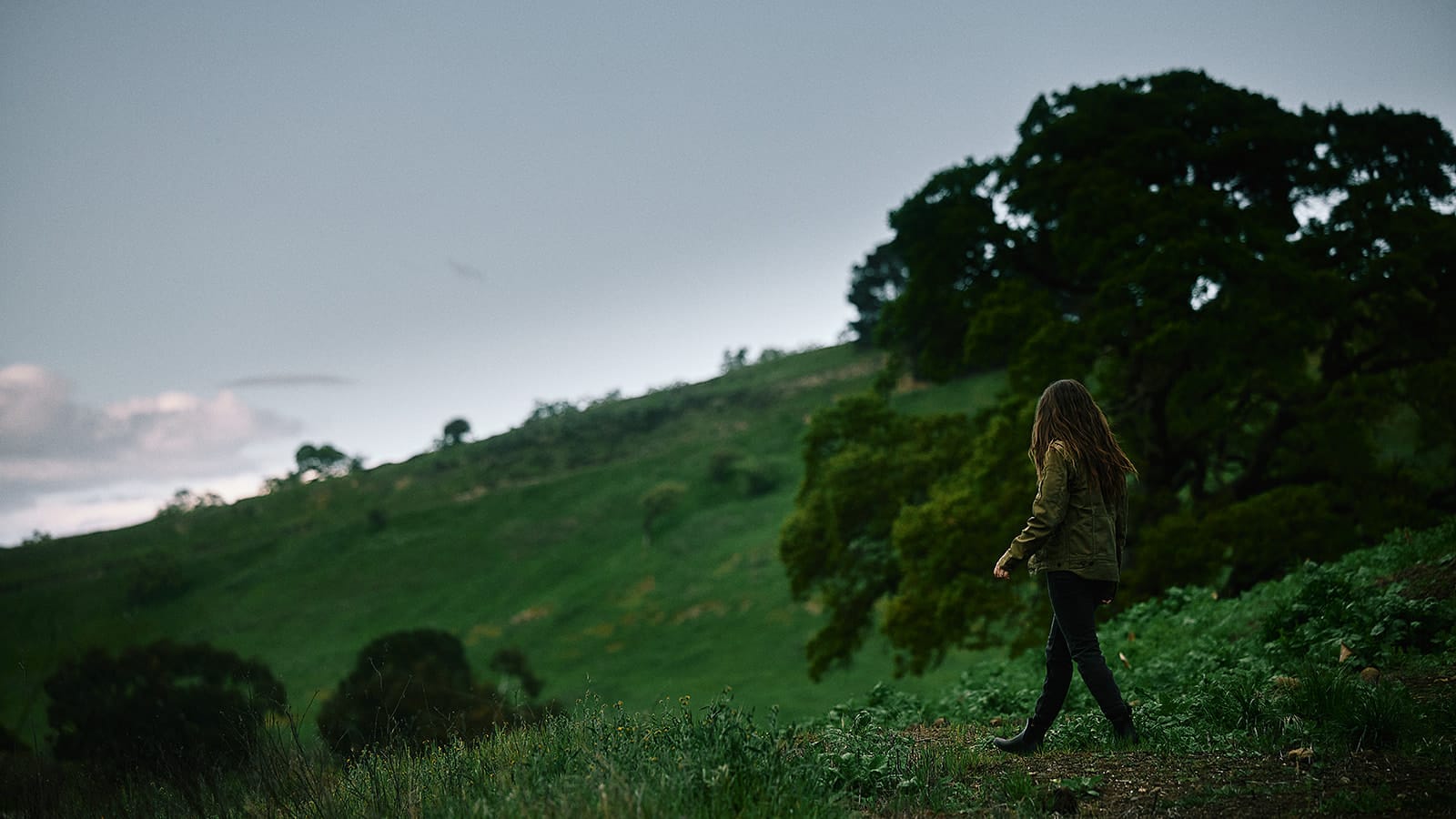
Adam
You've been rooted in both the Midwest and California, and I want to know how those places with their very distinct landscapes and associations shape your work? Your opening line “Tuolumne” – “How many seasons does it take / to know a place? /How many lives?” – speaks to this, I think.
Krissy
I lived in California for 18 years, really all of my adult life. I graduated from college and very quickly moved from the Midwest to California. My identity as a poet, as a writer, was very much shaped by my time there. I lived in LA for eight years, and I don't think I ever would have blossomed creatively – certainly not on the timeline that I did – if I hadn't lived in a city that was full of people who were working really hard to live out whatever creative thing was inside of them. Everyone I knew lived in LA because they had some kind of dream, and it was a creative dream.
Being around that is what made me think I could do it. The culture of California was a huge part.
And then the land. The hills of the East Bay and the mountains of Yosemite are part of me.
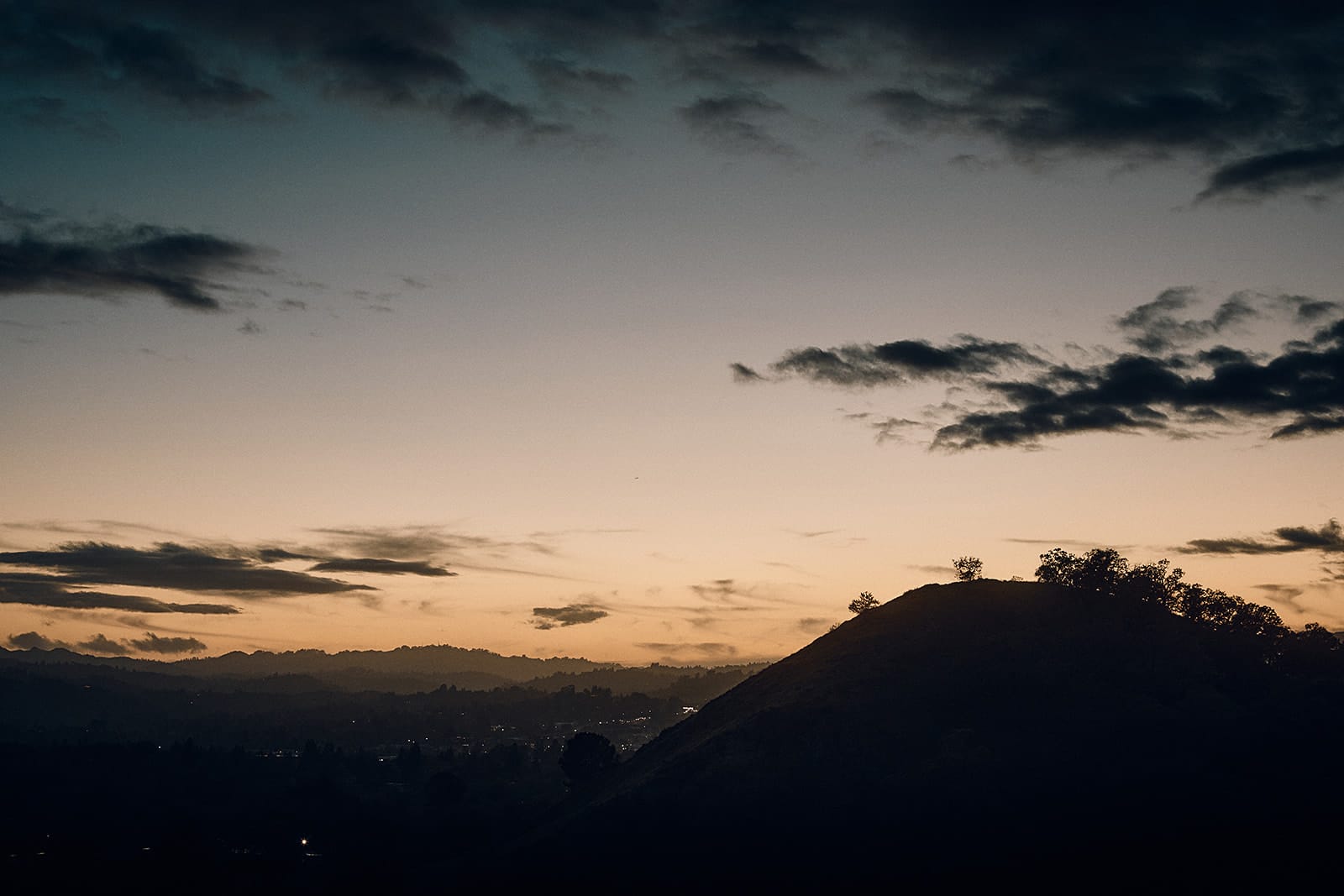
There's an actual physical exchange of molecules. They say that your body is remade every seven years, which means almost three times over, I am fully Californian!
There's something that my dad said to me once when I texted him from Tahoe where I was getting a rare snowy weekend, because I so desperately miss snowy Midwestern winters. He said, “Of course you do. You have a unique sense of place that's fully integrated with your sense of self.”
And I thought, of course I do, doesn't everybody? It turns out that maybe not. But I certainly do, and I think a lot of people do.
Maybe they don't always realize quite how much.
Adam
You're newly back in the Midwest, so how does being separated from California, where you were remade almost three full times, make you think about California? How is that distance reconfiguring your sense of place? Or, when you were in California, thinking back to where you grew up? How is the distance affecting not only your view where you are, but where you were?
Krissy
The word that comes to mind is “longing.” There's this desire, this love to be where I am not, which is complicated and difficult and also beautiful.
It hit me in the week that LA was on fire. Someone that I don't know – we had read each other's poems on The Nature of Our Times site – said in an email, because I’d mentioned having lived in LA, “Oh, so this fire is in your home too.”
Her words struck me hard, because I don't think of LA as home anymore. I haven't lived there in 10 years. Yet I felt the fear and the loss, because it was my home, and I felt it differently because I'm not there. It was this sort of realization that these things will happen. Tragedy is going to strike in every home I've lived in, and I won't necessarily be there to witness it. There's a strange sort of loss there.
There's the relief that I'm not in danger. Then there's the grief that I don't get to be part of this really difficult moment coming together with community, caring for a place that I love.
This sort of distance puts a different emotional weight behind some of the words that I'm writing and even the words that I have already written.
I went back and I edited a poem that I wrote years ago, during some of the really bad fires in northern California. I think the emotional weight came through differently in the poem because I'm looking back and looking back from a distance.
It took me months to write after I moved. I couldn't. I was so disoriented. I couldn't quite figure out how to even see what was in front of me very clearly, let alone put words to it. It was interesting.
The California landscape, at least where I was, was so vast. Everything's big. You've got ocean. Even the rolling hills were just big and broad, and the view is wide. The Sierras certainly were that way, the stark contrast of granite and light blue sky and clear water. I took a lot of photos.
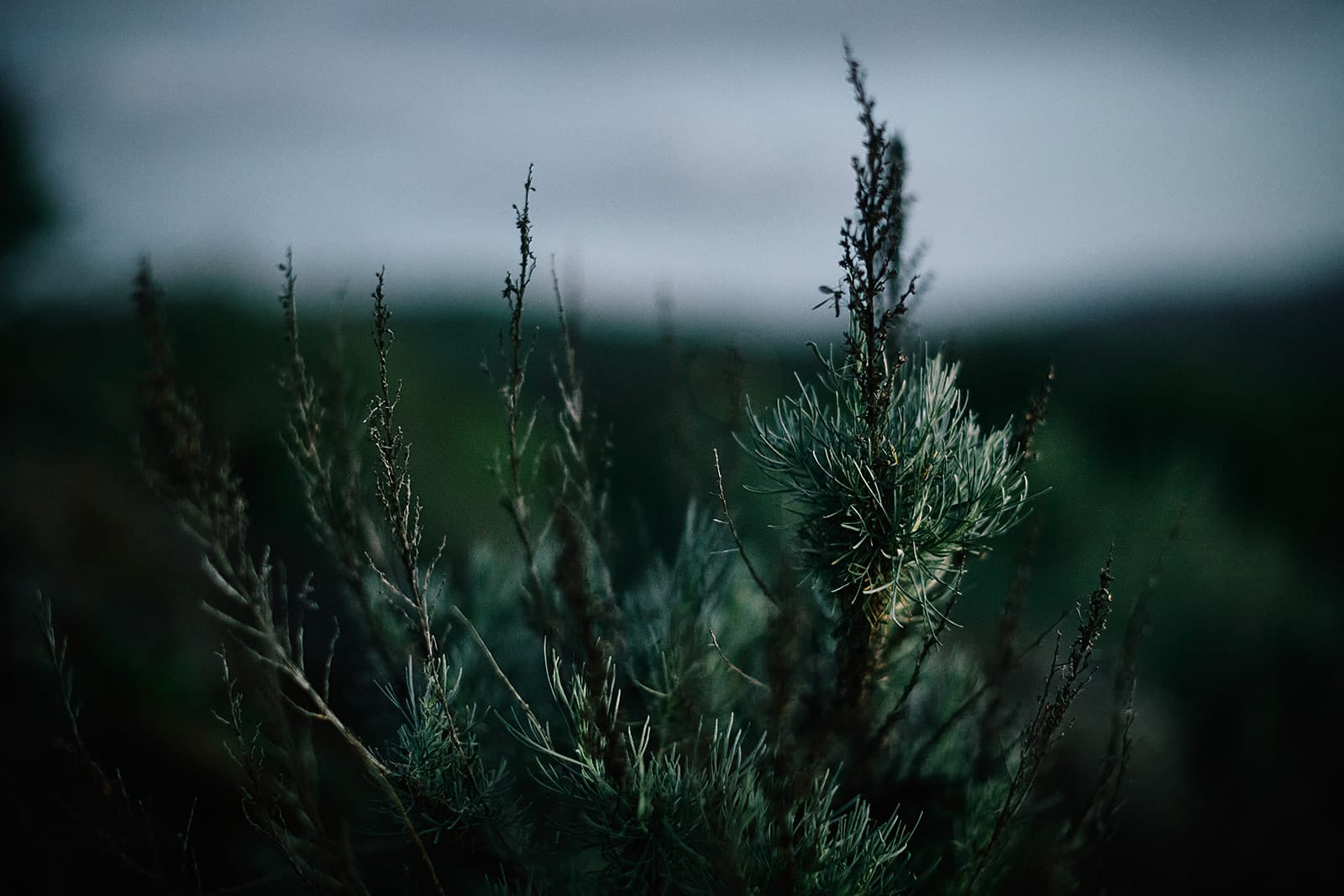
Then we moved, and all the land around me is all forest and prairie, and it’s so different. It’s beautiful, and it’s very alive, but I couldn’t figure out how to take a photo, which sounds like such a simple thing. But it felt similar to the writing: there's just thousands of plants, probably, I don't know, at least a few dozen varieties, and they're all blooming. It's this riot that's life.
How do I frame that?
I can't frame it in words.
I can't frame it in my camera lens.
The disorientation was jarring in some ways because I expected a little bit more of the, “oh, now I'm back home” feeling. But it had been so long, and I'm probably 8 or 10 miles from where I grew up. So it's not far, but it's a little different. There's no lake right here. There's a creek.
I was surprised by how disoriented I felt and how much that got in the way of being able to write.
Some of it, I think, was grief. I couldn't write about Wisconsin yet because I wasn't done, done enough (I'm sure I'll never be done) – I wasn't ready to not think about California.
I was sort of stuck for a bit in lots of observing, but not much processing or writing.
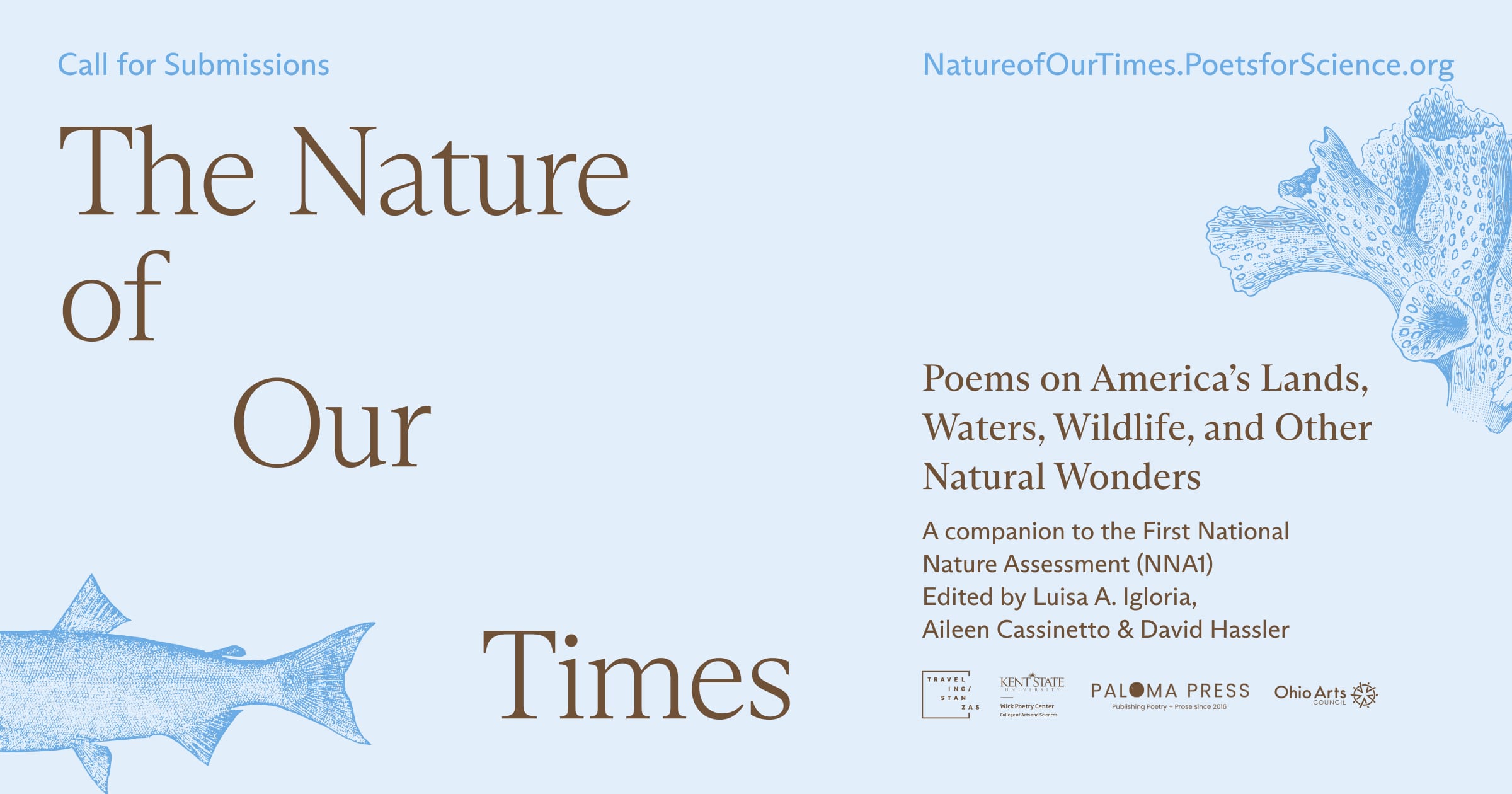
Adam
My last question: My newsletter is about place, history, and writing. What of those three resonates most and why?
Krissy
Very hard to pick. For today, I think I will choose place.
Place seems to be the medicine that I need most right now. Particularly in seasons where the writing doesn't come easily or maybe it does and there's just a lot.
I think place, being out on the land, witnessing – place is the most solid. I think we all need solace where we can find it right now. The days when I get caught in my head or locked in my inbox or overwhelmed at the state of the world, the very best thing I can do is go for a walk. A slow walk, not an exercise-walk, but an attention-walk. Or I can even just sit outside and attend to the air and the sun or the shade, the smell.
I think writing is really important. Writing is my task in many ways. It's certainly what I invite other people into, but I think place comes first, because I think the writing has to come from that.
If we are disconnected from our place, if we are disconnected from ourselves, then what are we doing?
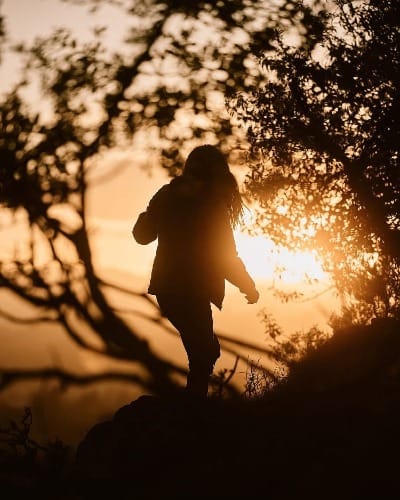
Follow Krissy's Work
You can find out more about Krissy's work on her website and about Writing the Wild on its website. Krissy and Writing the Wild keep active Instagram accounts that alert the public to events available for anyone.
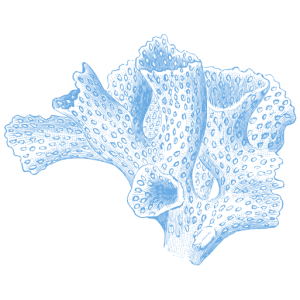
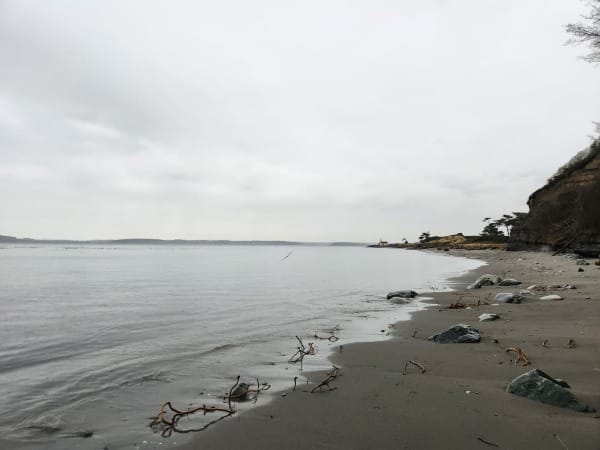
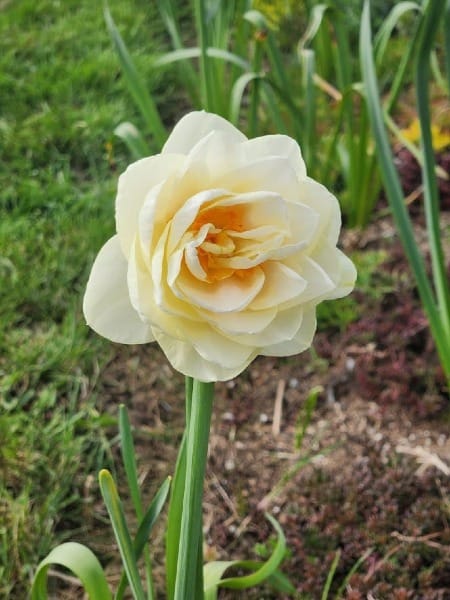
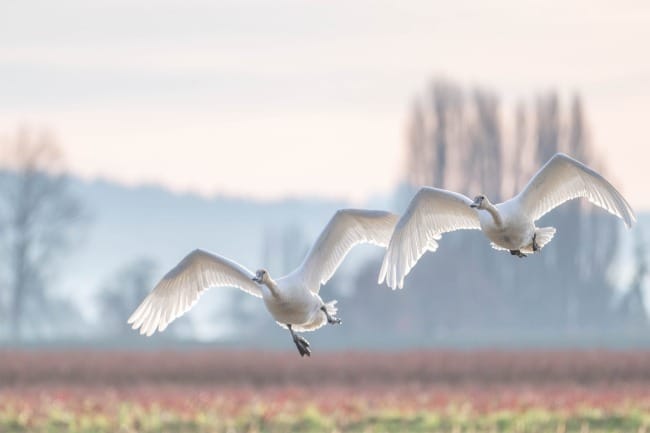
Comments ()